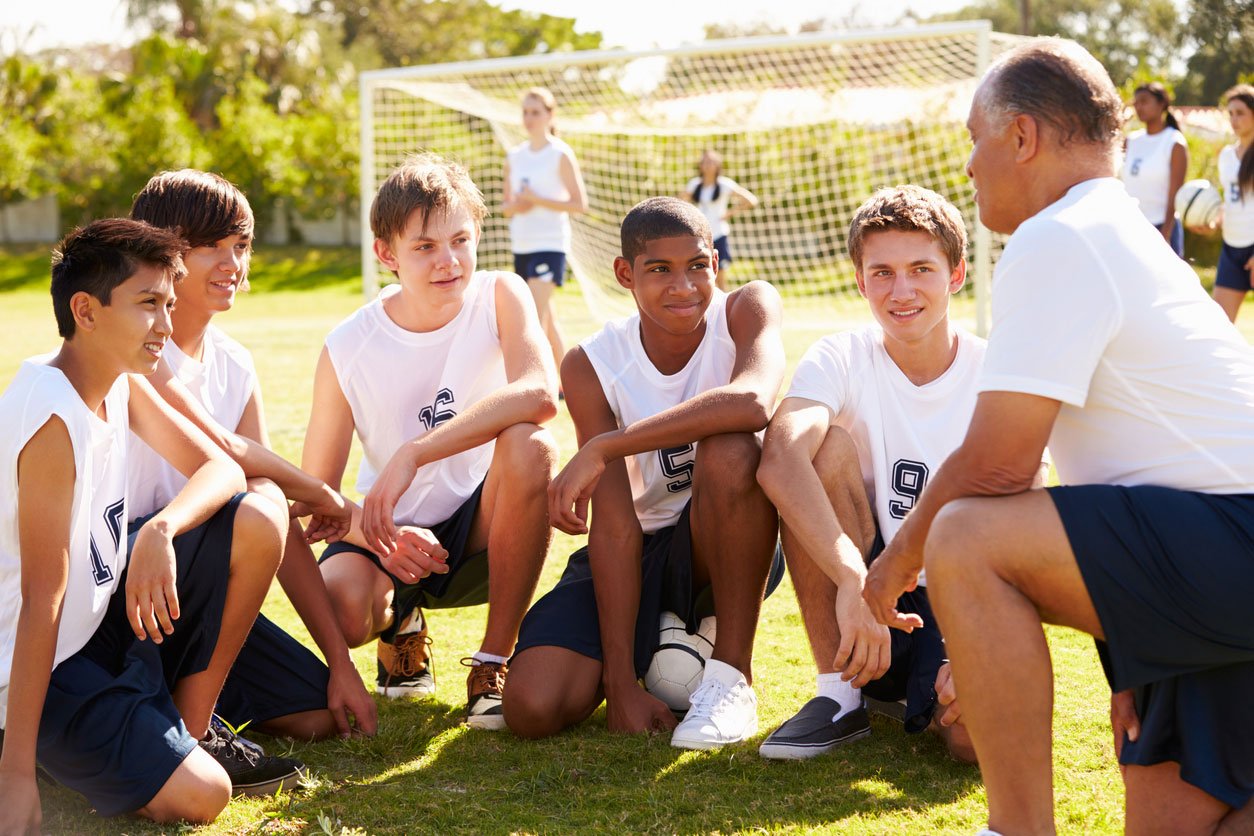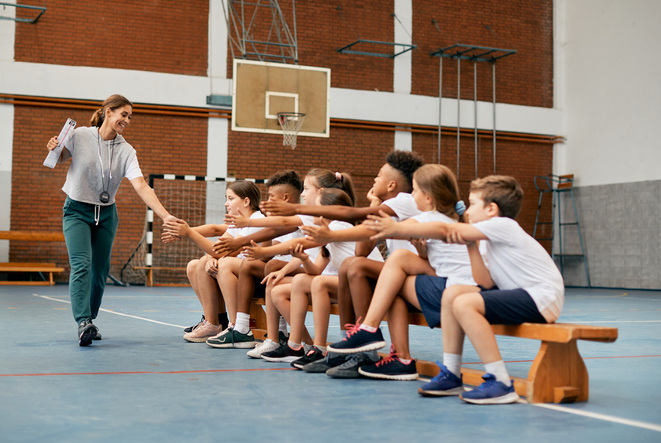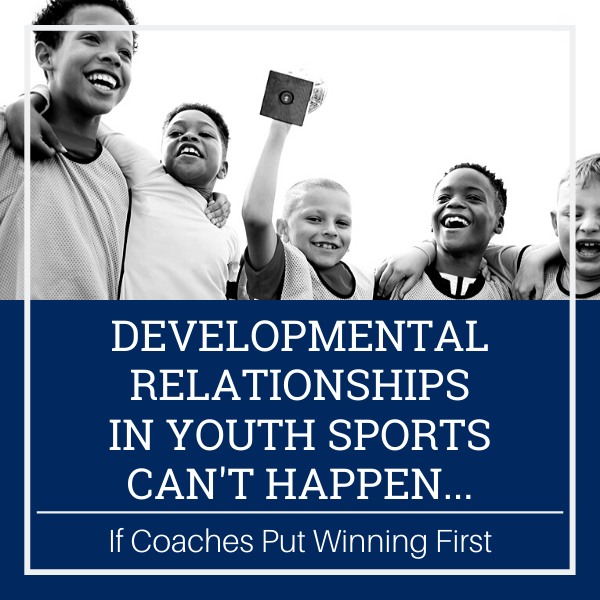Blog
What Young Athletes Need for Mental Wellness
"You Can’t Grow an Orchid from a Can of Sawdust"
As a youth sports coach, the most important thing I do is let them know that how I feel about them has nothing to do with whether they win or lose. But sometimes we all need a reminder that participants in youth sports are human beings, not athletic machines. Athletes of all ages struggle with mental health issues related to life in general and to the pressures of sports.
What can coaches and caring adults do to encourage mental wellness in young athletes?
First and foremost, we can show them that they matter.
Emotional Reassurance
A couple of seasons ago, my number‑1 high school girls’ JV tennis doubles team was losing 2‑7 in a proset where the first to win 8 games wins the match.
The players looked sad, sluggish, unhappy. I called them over to the fence, and rather than talking about technique or strategy, I simply said, “You know, right, that how I feel about you has nothing to do with whether you win or lose a match? I love you whether you win or lose.”
You could see all the stress and tension drip away from them in an instant. Stephanie said with a smile, “Ah, Coach Pete said he loves us!” We all laughed, they ran back onto the court, animated and smiling —and they played great. No fairy tale here: they lost, 6‑8, but they won 4‑1 over the last 5 games. So they lost on the scoreboard but walked off being okay with how they played, knowing that they were winners regardless of the score. I chalk it up to that little reminder that Coach loved them regardless of a W or an L.
TrueSport and the U.S. Anti‑Doping Agency sponsored a fantastic conference on mental wellness and the young athlete where I spoke in December 2021. Some of the other speakers were Olympic medalists who shared about the serious impact on their mental health when their whole identities were wrapped up in their sport and in winning.
Gracie Gold was one of the speakers. She’s a bronze medalist in figure skating in 2014, two‑times national champion, who was fourth in the world three times. She spoke about how at one point she felt suicidal because of how narrowly she and many people defined her success and her identity. She felt worthless, and thought maybe the world didn’t need any more of her. Gracie nailed the importance of that reminder I gave to my doubles team — that our relationships with them, as coaches, parents, and friends, have to let them deeply know they are worthy and lovable human beings regardless of their athletic performances. As Gracie put it, “You can’t put a flower seed in a can of sawdust and expect an orchid to come out!”
Nurturing Young Athletes
If you want the orchid to bloom, you have to root it in great soil and take care of it, nurture it.
As it happens, we at Search Institute have used a similar metaphor for the last few years when we talk about how young people need plentiful developmental relationships to grow and thrive—only we use a tree, instead of an orchid, to make the point. Both need to be nurtured in order to thrive and not just exist.
We face many overlapping crises in this country at the moment. One of them, even before the pandemic, was the state of young people’s mental health. In a stroke of surreal coincidence, the day the Conference on Mental Wellness and the Young Athlete started, a major Surgeon General’s Advisory was released on protecting youth mental health.
That report documents how—even before the pandemic—the proportion of high school students who reported persistent feelings of sadness or hopelessness increased by 40%, to more than 1 in 3 students. The proportion of young people seriously considering a suicide attempt also exploded by about 40%.
A Growing Problem
A complex system of factors fueled those accelerating mental health problems, the report notes: the rise of social media, increased academic pressures, lack of access to mental health care, increasing income inequality, racism, and gun violence. The pandemic and disruption of so many sources of relationship support from family, friends, school, and activities has exponentially worsened many of these trends for young people.
Research including 80,000 youth around the world reports that anxiety and depression have doubled among youth globally during the pandemic. And, as we know, the stress and trauma of the pandemic have not been experienced equitably—youth of color and those whose families are struggling financially are disproportionately affected.
The Pressure to Perform
Student-athletes are not only not immune to these stresses and mental health issues—they have additional ones. Even the most mentally well‑functioning student‑athlete will face the nearly impossible task of balancing time for their sport, academics, and a social life.
Among college athletes, even at Division III schools, where no athletic scholarships are given, student‑athletes will often spend a full work week on their sport, on top of academic studies. An NCAA study last year found that collegiate student‑athletes had double the rates of mental health concerns compared to pre‑pandemic numbers; mental exhaustion, anxiety, hopelessness, and feelings of depression remain elevated for these struggling young people.
The pressure to perform well and win—even at the non‑elite, recreational, and participation level—drives most kids to quit sports by age 11, according to the Aspen Institute. When personal and social identity and feelings of worth become so deeply and narrowly wrapped up in being a “winner,” it’s no wonder that studies show student‑athletes with that “performance” identity report more anxiety, depression, and fear of failure than their athlete peers whose self‑worth and sense of purpose aren’t so contingent on performance.
Solutions Rooted in Relationships
As coaches, practitioners, and communities, we can do more to promote personal bests for young people both on the playing field and when it comes to their mental well‑being.
How do we do it?
First, we can prioritize building developmental relationships among coaches and players, coaches and parents, players and parents, and among teammates. Coaches are in a unique position to help young people be and become their best selves by internalizing and practicing the components of the developmental relationships framework: express care, challenge growth, provide support, share power, and expand possibilities.
Coaches can do all those things for student‑athletes by adopting a coaching philosophy and approach that honors the relationships and helps student‑athletes put winning into broader perspective.
“Love of the Game” Coaching
One way to honor and nurture developmental relationships with student‑athletes is to adopt a coaching philosophy that emphasizes “love of the game.” That approach to competition, shorthanded as “Compete‑Learn‑Honor,” rewards young people for competing with full effort, whether they win or lose. It encourages a growth mindset to learning and trying new things, and acting with high character under the stresses and adversities of training and competition.
Ironically, even though this approach does not focus on winning, psychological and sport science studies consistently show the approach is better for athletes’ performance as well as their mental health.
An overwhelming body of research evidence shows that, done the right way, sports can have a great positive impact on young people. The right way does not mean ignoring the desire to win. We are not saying winning doesn’t matter: It is more fun to win a contest! And we want student-athletes to do all they can—honorably, within the rules of their game, and in the spirit of healthy, clean competition—to try to win.
‘The Game Is Not Who You Are’
But most of all, student‑athletes need to know that winning does not make them a better person, and losing does not make them a worse person.
The game is what you do, not who you are.
Our relationships with them and the “love of the game” coaching approaches can help young athletes understand that truth at a deep level; this will promote their ability to play well and thrive in their lives.
And when young people are experiencing mental health issues—feeling lonely, inadequate, hopeless, and anxious—those relationships and balanced perspectives on the game will hopefully help them be honest and open with us about what they feel and what they need.
As Gracie Gold also said, there is no Olympic medal for who can suffer the longest in silence!
Every one of our young student-athletes is an orchid needing something far better than sawdust to nurture their growth.
As we watch and marvel at the athletic feats of Olympians, professionals, and the student‑athletes all around us, let’s remember that the most important nutrient all young athletes need is not a medal but knowing deep in their heart that they are loved whether they win or lose.
Then it’s time to watch those orchids bloom.
Find more resources on youth development, and athletes’ mental health and wellbeing, including Peter C. Scales’ session at the TrueSport conference, here.
__________
Peter C. Scales, Ph.D., USPTA is Search Institute’s Senior Fellow, a U.S. Professional Tennis Association‑certified tennis teaching pro, long‑time high school tennis coach for boys and girls teams, and author of the award‑winning book, Mental and Emotional Training for Tennis: Compete‑Learn‑Honor (Coaches Choice, 2019), which the National High School Tennis Coaches Association called one of the best books ever on the mental game. A regular mental game columnist for Racquet Sports Industry Magazine, his new book, The Compete‑Learn‑Honor Playbook, will be published later this year by Coaches Choice.





